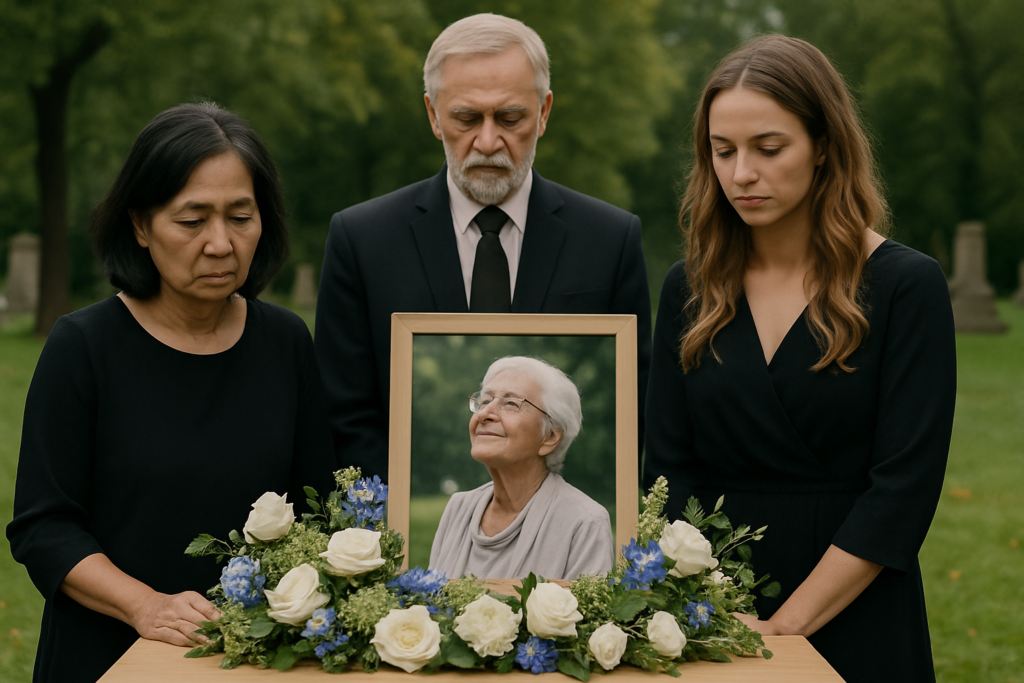
As Australia’s population becomes more culturally and spiritually diverse, the meaning and structure of funeral services are shifting—reflecting the unique ways communities express grief, honour loved ones, and find closure.
Navigating Grief in a Multicultural Nation
Australia is home to more than 270 ethnic backgrounds and over 100 religions. In this culturally rich environment, grief is a shared human experience expressed through many different lenses. Whether it’s a quiet cremation with minimal ritual or a vibrant procession of music, prayers, and ancestral customs, every farewell carries meaning.
Funeral services are evolving to reflect this diversity. No longer shaped by a single standard, they now offer flexible formats, venues, and ceremonial practices that honour an individual’s life, beliefs, and community connections.
In this context, the role of funeral providers becomes far more than logistical—it becomes relational and cultural. As explored in this feature on the role of diversity in modern Australia, recognising cultural nuance is critical to creating inclusive services that help communities grieve and heal.
Cultural Traditions and Mourning Practices
Faith-Based Rituals
In many cultures, religious beliefs dictate the funeral process. For example, Hindu services involve cremation and scattering of ashes in a sacred river, while Islamic funerals require burial within 24 hours, preceded by ritual washing and prayers. Christian services may include church-based ceremonies, hymns, and eulogies, whereas Buddhist funerals focus on reincarnation, with chanting and incense to guide the soul.
Understanding these customs is crucial. A service that overlooks them can unintentionally cause distress or disrespect. Funeral providers must be prepared to accommodate the specific needs of different faith groups, from dietary restrictions at the wake to guidance from spiritual leaders.
Regional and Community Variations
Beyond religion, cultural background often shapes expectations around dress, behaviour, and ceremony length. Pacific Islander services may extend over several days, incorporating song and communal storytelling. East Asian families may prioritise ancestor veneration, with altars, incense, and symbolic offerings playing a central role.
In each of these contexts, the aim remains the same: to help the living say goodbye, find peace, and honour tradition. Funeral services must support this with empathy, knowledge, and adaptability.
The Changing Face of Funeral Services
Moving Beyond the One-Size-Fits-All Approach
Traditional funeral templates—religious chapel, fixed format, rigid schedule—no longer serve every family’s needs. Australia is seeing a growing demand for civil ceremonies, outdoor services, and personalised tributes. These may include anything from visual slideshows and live music to symbolic rituals such as tree planting or letter reading.
This shift is not just about preference—it’s about relevance. People want funerals that reflect the life lived, not just a standard template.
Supporting Modern Australian Families
Modern families are often blended, geographically dispersed, or secular. This complexity requires services that respect both traditional elements and new dynamics. Providers who prioritise communication, cultural fluency, and emotional sensitivity help reduce stress and allow families to focus on what matters: saying goodbye meaningfully.
For families seeking inclusive support, Life Rites offers compassionate funeral services in Sydney that embrace cultural diversity, spirituality, and individual legacy. Their team helps navigate complex needs while maintaining respect for community and family traditions.
The Role of Funerals in Community Healing
Holding Space for Shared Grief
Funeral services do more than farewell the dead—they support the living. Attendees often include extended relatives, friends, neighbours, and community members. These events allow people to express shared sorrow, offer support, and begin healing together.
Public memorials and culturally specific mourning rituals can be a vital outlet for collective grief, especially in times of unexpected loss or tragedy. In some communities, large gatherings, traditional chanting, or extended wakes become communal ceremonies that reaffirm identity and unity.
Preserving Generational Bonds
For many families, funerals also serve as a connection point between generations. Children witness how grief is handled, traditions are followed, and respect is paid. They hear stories, learn values, and begin to understand their place within a wider cultural and familial framework.
This intergenerational exchange deepens the meaning of the event and helps keep heritage alive. As explained in this article on how rituals shape identity and connection, these moments contribute to cultural continuity and emotional resilience.
Making Funeral Services More Inclusive
Breaking Down Barriers
In diverse communities, language can be a significant barrier. Funeral providers who offer multilingual staff, translated materials, or work with bilingual celebrants may ease the burden on families navigating grief in a second language.
Accessibility is another consideration—some families need wheelchair-friendly venues, hearing assistance systems, or options for remote attendees. Others may require cultural liaisons to ensure rituals are correctly observed.
Real-World Inclusive Practices
Examples of inclusive funeral practices might include:
- Allowing guests to wear cultural dress, such as sarees, taqiyahs, or traditional robes
- Incorporating chants, hymns, or prayers in multiple languages
- Coordinating with community leaders or elders to ensure protocol is observed
- Offering vegetarian or religiously approved food at wakes
- Providing flexible scheduling to accommodate time-sensitive customs
These aren’t “add-ons”—they are essential features of meaningful, respectful funeral services in today’s society.
Grief, Honour, and the Future of Farewell Services
As Australia continues to grow and evolve, so too does the way we say goodbye. Funeral services are no longer just a formality—they are a profound opportunity to reflect identity, culture, and connection.
From personalised civil ceremonies to deeply traditional rites, the role of funeral providers is to honour lives in ways that resonate with families and communities. Those who lead with compassion, cultural literacy, and flexibility will shape the future of inclusive, healing farewells.
For Sydney families navigating this space, Life Rites offers compassionate funeral services in Sydney that balance respect, ritual, and modern understanding—helping communities grieve with dignity and togetherness.